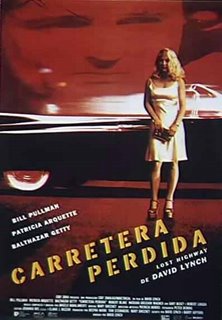Lost highway: David Lynch's psychogenic fugue
 to the present, we haven’t dealt with a science as thrilling as psychiatry in the blog, so it is about time. In 1997 David Lynch released a movie that got little attention then, but that reached a cult status years later, when its author was fashionable again with Mulholland drive. We are talking about Lost highway, the story of someone going through a personality change named a psychogenic fugue by Lynch.
to the present, we haven’t dealt with a science as thrilling as psychiatry in the blog, so it is about time. In 1997 David Lynch released a movie that got little attention then, but that reached a cult status years later, when its author was fashionable again with Mulholland drive. We are talking about Lost highway, the story of someone going through a personality change named a psychogenic fugue by Lynch.Well, this psychogenic fugue isn’t a filmmaker’s invention, it exists actually and is considered as a dissociative disorder. Nevertheless, it is better known as fugue state or dissociative fugue. A dissociative fugue is a getaway, which means those who go through it run from their home and their environment, including a total or partial amnesia about their previous life. The patient may end up building a new identity. It usually happens after a dramatic event, as a war or an accident. Running away from their own personality to avoid diff iculties or feelings of guilt is actually a way of defending themselves.
iculties or feelings of guilt is actually a way of defending themselves.

0 Comments:
Post a Comment
<< Home